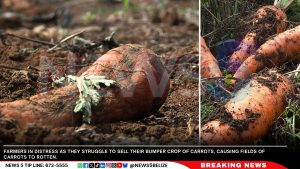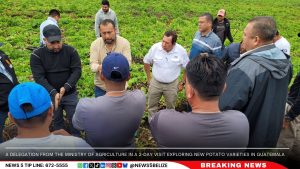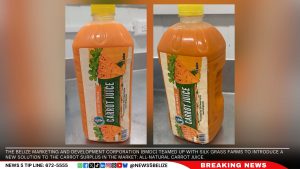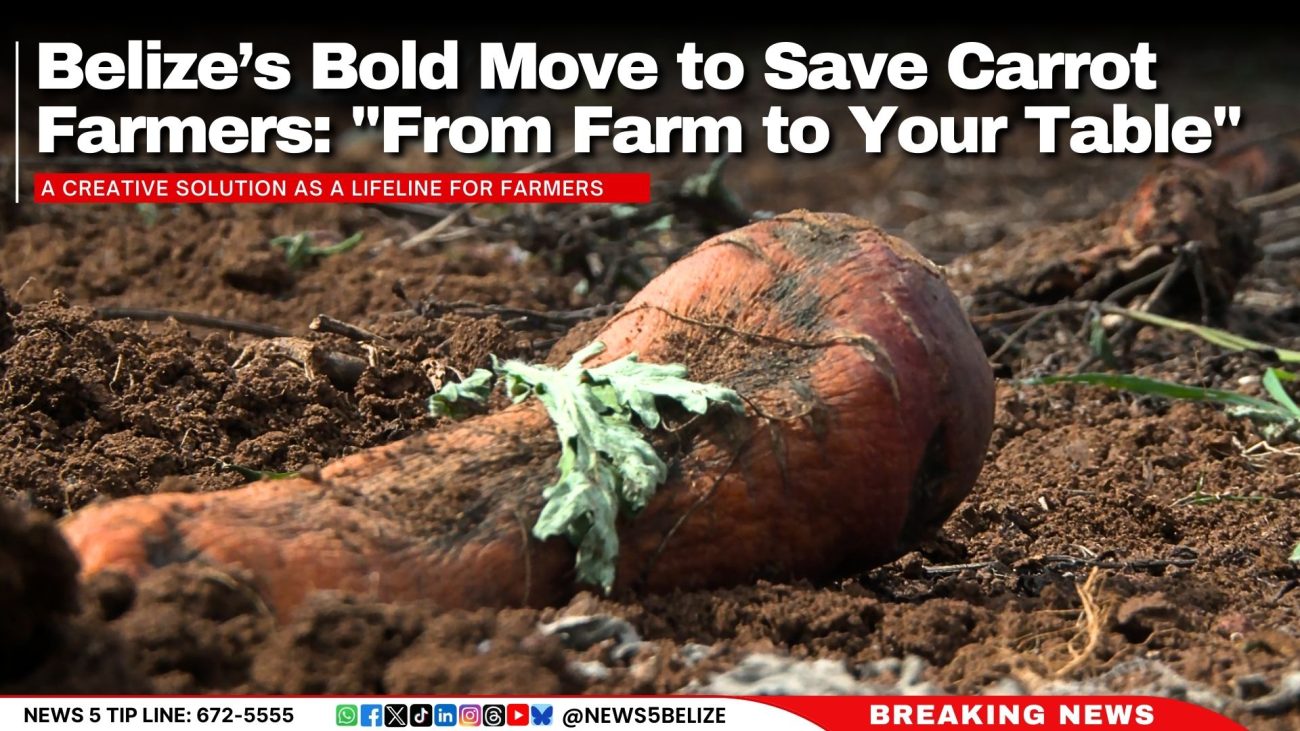Belize’s Bold Move to Save Carrot Farmers: “From Farm to Your Table”
In the fertile fields of Belize, a crop that should be a symbol of agricultural success has become the backdrop for a growing crisis. Carrot farmers across the country, particularly in the northern districts of Orange Walk and Corozal, are watching helplessly as their bumper harvests wither away unsold.
Sabino Yam, a farmer from Patchakan Village in Corozal, sums up the frustration felt by many: “It is the selling of the carrots we are having a problem with right now. I have contacted some of my buyers, and they are not buying.”
A market oversaturated with carrots, compounded by competition from cheaper, imported Mexican produce, has left many local farmers with no buyers—and low income.

Oversupply, Competition, Contraband, or Seasonal Fluctuations?
The oversupply problem can be traced back to the unpredictable weather patterns of 2024. After a drought in the latter half of 2023 delayed planting schedules, farmers found themselves all harvesting at the same time in December. This created a glut in the market. Andrew Mejia, acting director of extensions for the Ministry of Agriculture, says the surplus is due to the unfortunate timing of planting and harvesting.
However, many farmers believe there’s another issue at play: the illegal influx of Mexican carrots. “I have not seen much. As a result, I can conclude that this contraband is passing through the border,” Yam said. Despite official statements denying any new imports from Mexico, locals suspect contraband produce is flooding the market, driving prices down and further undercutting Belizean growers. “We have our doubts. We think that contraband has something to do with how they are not buying carrots from us right now,” says José González, a farmer in Indian Creek Village.

Minister of Agriculture, Jose Abelardo Mai, denied claims of contraband carrots, stating that Belize does not import carrots when there is enough local supply. He said, “The Ministry of Agriculture has never and will never issue importation permits when we are harvesting carrots.” Mai explained that the issue is seasonal, with all crops maturing at once, leading to high supply and slow sales. He added, “As for contraband, the Ministry of Agriculture does not control contraband. We try to work with customs, immigration… We closed borders. Up to now, we haven’t seen enough evidence of illegal import of carrots because the quality is known.”
A Creative Solution as a Lifeline for Farmers
Well, hard times often bring about the most innovative ideas. In response to the surplus, the Belize Marketing and Development Corporation (BMDC) has teamed up with Silk Grass Farms to introduce a new solution: all-natural carrot juice.
This fresh, vitamin-packed drink is made from locally grown carrots and a taste of Belize’s agricultural pride. It is not just another beverage; it represents a potential lifeline for farmers struggling with unsold produce.

“It’s more than just juice—it’s a taste of Belize, straight from the farm to your table,” the BMDC said. ““By choosing this refreshing drink, you’re supporting local farmers and embracing the goodness of healthy, Belizean-made products.”
A Long-Term Vision: Diversification for Stability
Beyond immediate solutions like the carrot juice project, the Ministry of Agriculture is working on a broader, long-term strategy to ensure the stability of Belize’s farming industry. In January, a delegation led by Minister José Abelardo Mai visited Guatemala, where they explored innovative farming practices and new crop varieties that could transform Belize’s agricultural landscape.
With plans to introduce new potato varieties that can be processed by major companies like Frito-Lay, the ministry is looking to diversify the country’s agricultural portfolio, making farmers less reliant on single crops like carrots.
The ministry said in an official statement that it “focuses on adding value to other perishable crops, aiming to create long-term solutions for farmers.” By exploring new varieties and processing opportunities, Belize’s farmers could access new revenue streams and markets, potentially avoiding the overproduction and market saturation seen with carrots.

The ministry says that diversification offers the potential for a more resilient agricultural industry, less vulnerable to the whims of nature and market forces.
As Belizeans sip on a glass of Belizean-made carrot juice, they are reminded that the country’s agricultural future depends on both innovation and a commitment to supporting the hard-working farmers who are its backbone.







Facebook Comments